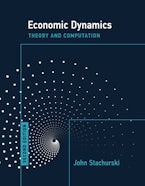The authors successfully resolve what has been the most vexing problem in development finance: Should middle-income countries liberalize domestic interest rates and free international capital flows in the presence of domestic credit market distortions and moral hazard from government rescue operations? Tornell and Westermann show that financial fragility, and the possibility of major crashes, naturally increase with such financial liberalization. But such liberalization also stimulates growth, albeit unevenly, over the longer term. A must-read for students of development finance.
Ronald I. McKinnon, William D. Eberle Professor of International Economics, Stanford University
This book by Tornell and Westermann is an excellent starting point for public-policy debates on the pros and cons of financial liberalization in developing countries. They put forward a provocative argument: welfare costs of financial crises are, on average, outweighed by the benefits of high growth. The authors provide state-of-the-art theoretical analysis and supporting evidence to illustrate, in a novel way, the workings of an unconventional credit channel responsible for boom-bust cycles.
Assaf Razin, Bernard Schawrtz Professor of Global Markets, Tel Aviv University, and Friedman Professor of International Economics, Cornell University
The authors successfully resolve what has been the most vexing problem in development finance: should middle-income countries liberalize domestic interest rates and free international capital flows in the presence of domestic credit market distortions and moral hazard from government rescue operations? Tornell and Westermann show that financial fragility, and the possibility of major crashes, naturally increases with such financial liberalization. But such liberalization also stimulates growth, albeit unevenly, over the longer term. A must-read for students of development finance.
Ronald I. McKinnon, William D. Eberle Professor of International Economics Stanford University












